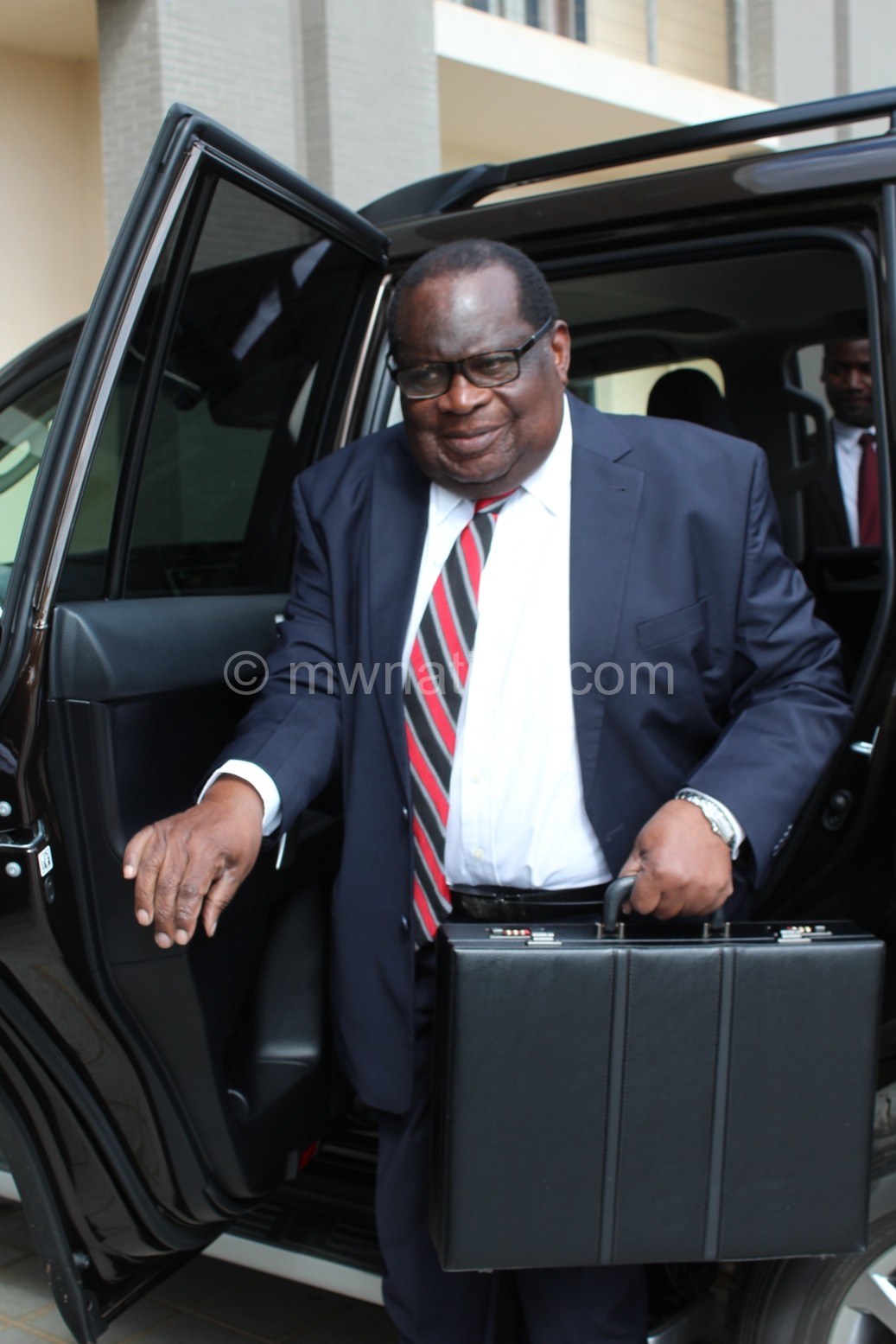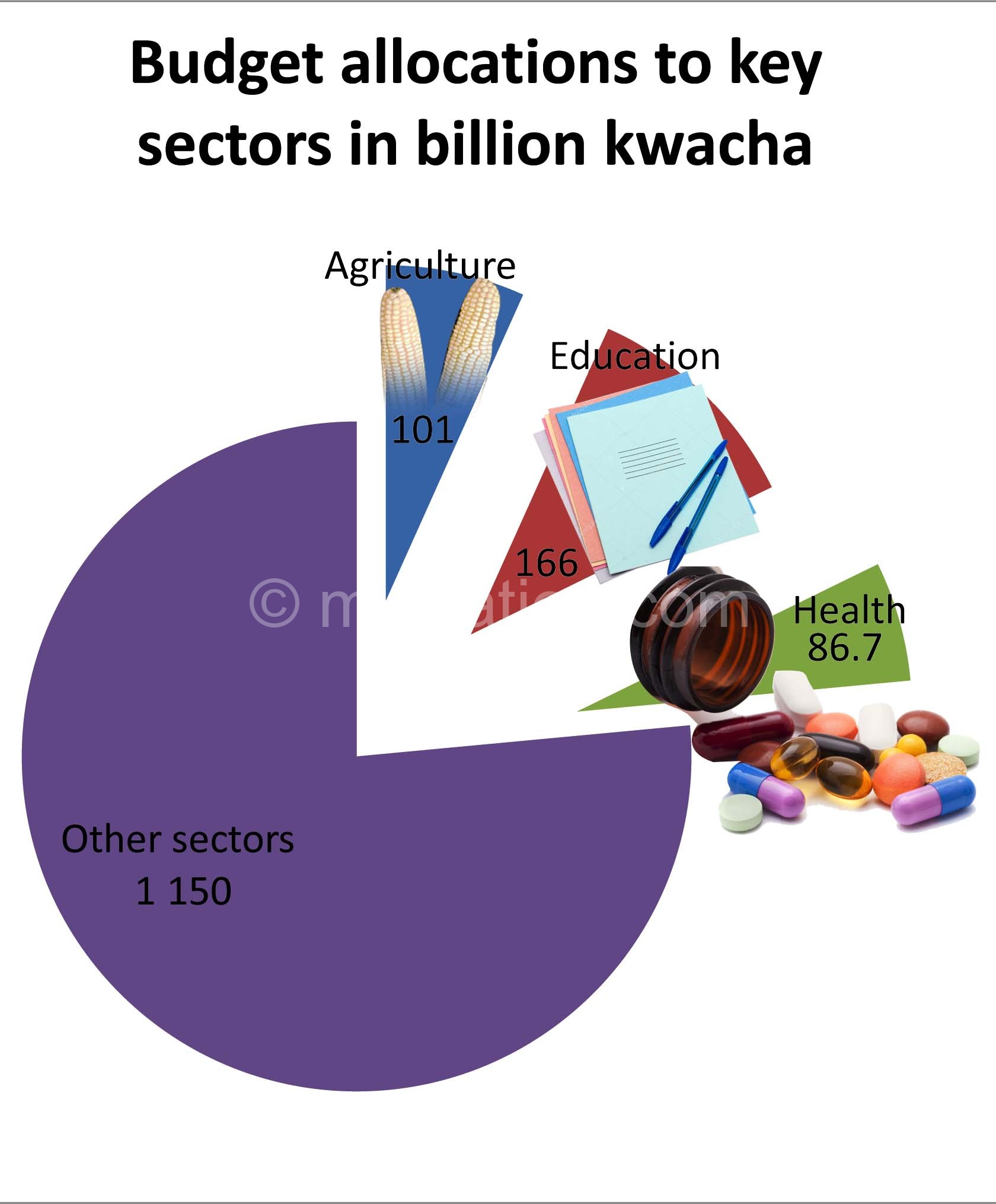Goodall unveils 2018/19 budget
Pegged at K1.504 trillion, Minister of Finance, Economic Planning and Development Goodall Gondwe yesterday presented the fifth and final budget of the government that seeks re-election by pacifying those disgruntled by economic realities of the day.
The budget represents 28.2 percent of the country’s gross development product (GDP). In it, Gondwe unpacked projects and subsequent expenditure programmes clearly aimed at boosting chances for President Peter Mutharika’s ruling Democratic Progressive Party (DPP) re-election.

Among other projects announced, the minister said government was opening up jobs in the civil service, such as teaching and nursing, where for a long time recruitment was frozen. The about-turn on the matter is seen as a move aimed at pacifying those frustrated by growing unemployment.
“Government has also planned to recruit 10 500 primary school teachers, 500 secondary school teachers and 1 000 medical personnel. Thus starting from this year, teachers and other personnel will be recruited soon after their graduation. The practice that started in 2013, to recruit teachers one year after graduation, will no longer be necessary,” said Gondwe.
He also announced salary increases for junior civil servants by some 20 percent (with senior grade officers to receive a 10 percent hike), driving the wage bill to K392.0 billion (7.4 percent of the GDP) and representing a 24.3 percent increase over the 2017/18 likely outturn.

The tax-free income bracket under pay as you earn (Paye) was increased from K30 000 to K35 000, the explanation being that this is aimed at improving the disposable income of taxable salaried persons.
The youth—a huge voting demographic in a country experiencing a youth bulge—were targeted by, among others, a K4.8 billion allocation to the newly-created Youth Internship Programme designed to recruit 5 000 youths aged between 18 and 30, to be placed in various ministries, departments and local councils.
Curiously, Gondwe has additionally committed K5 billion for tree planting and care programme that will employ another 10 000 youths.
“The objective of this programme is to equip the youth with knowledge, skills and ethics as a way of nurturing them for a career in the Civil Service as well as in the private sector,” he said.

Chiefs, too, could count their blessings as their monthly honoraria went up, and so did the controversial K4 billion allocation to constituencies, which Gondwe yesterday clarified will now go to area development committees (ADCs), despite cuts to several allocations in government.
“An amount of K20.7 billion for Rural Development, through the Constituent Development Fund, District Development Fund, Local Development Fund and a further K7 billion that could be used on community projects has been included in the budget. This is more than 5 percent of the total Development Budget of the Central Government. District Development Fund (DDF), K4.5 billion for Constituency Development Fund.
“Mr. Speaker, Sir, government is proposing to commence another funding window for rural development that could service some 300 Area Development Committees. An amount of K6.0 billion has been earmarked for this purpose,” said Gondwe.
The minister said for the first time, the country will pay for a major election without donor support—revealing that government was committing an estimated K31.5 billion to support the electoral process, including covering voter registration and verification, education and outreach, election materials, vehicles and other polling services.
The Farm Input Subsidy Programme (Fisp) in the 2018/19 growing season—a crucial voter appeasement programme for rural farmers—has been allocated K41.5 billion, which will reach out to one million beneficiaries for both fertiliser and seeds from the 2017/18 revised figure of K33.2 billion which targeted 900 beneficiaries.
The Decent and Affordable Rural Housing Project—the President’s signature project—and another social spending initiative, has been allocated K10 billion, representing an increase of 14.3 percent from the 2017/18 revised figure of K7 billion with some 8 000 houses expected to be constructed and rehabilitated.
Gondwe, who said the administration has made strides to curb corruption and pilferage of public resources, announced the administration was spending some K5 billion in the financial year to procure a new Integrated Financial Management Information System (Ifmis) software.
The Development Budget has been increased by 25.6 percent over the 2017/18 Development Budget to K391.7 billion, representing 7.3 percent of the GDP, with recurrent expenditure estimated at K1 104.5 billion, which is 20.7 percent of GDP.
Within the K392 billion Development Budget, the highest allocation has gone to the agriculture sector, with an amount of K78 billion compared to K43 billion to the education sector and K69 billion which has been allocated for road construction.
Out of the total budget, revenue and grants are projected at K1 261 billion, which is 23.6 percent of the GDP and domestic revenue has been set at K1 052 billion, representing 19.7 percent of the GDP.
Grants are programmed to reach K209 billion (3.9 percent of GDP), of which K60 billion is budget support from the World Bank. But Gondwe, while saying the European Union (EU) will provide some funds during the financial year, fell short of mentioning a timeframe and the amount.
Grants are constituted by the budget support from the World Bank and dedicated grants are expected to amount to K62 billion and project grants at K86 billion.





